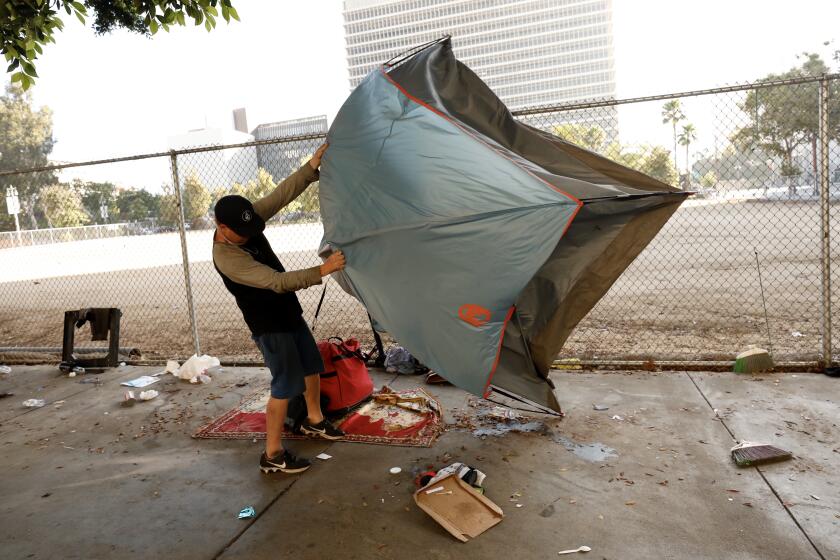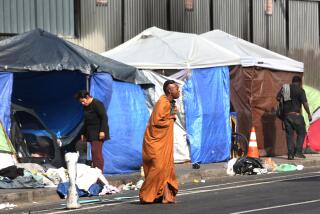Protesters surround tents, block streets to stop major cleanup of Hollywood homeless encampment
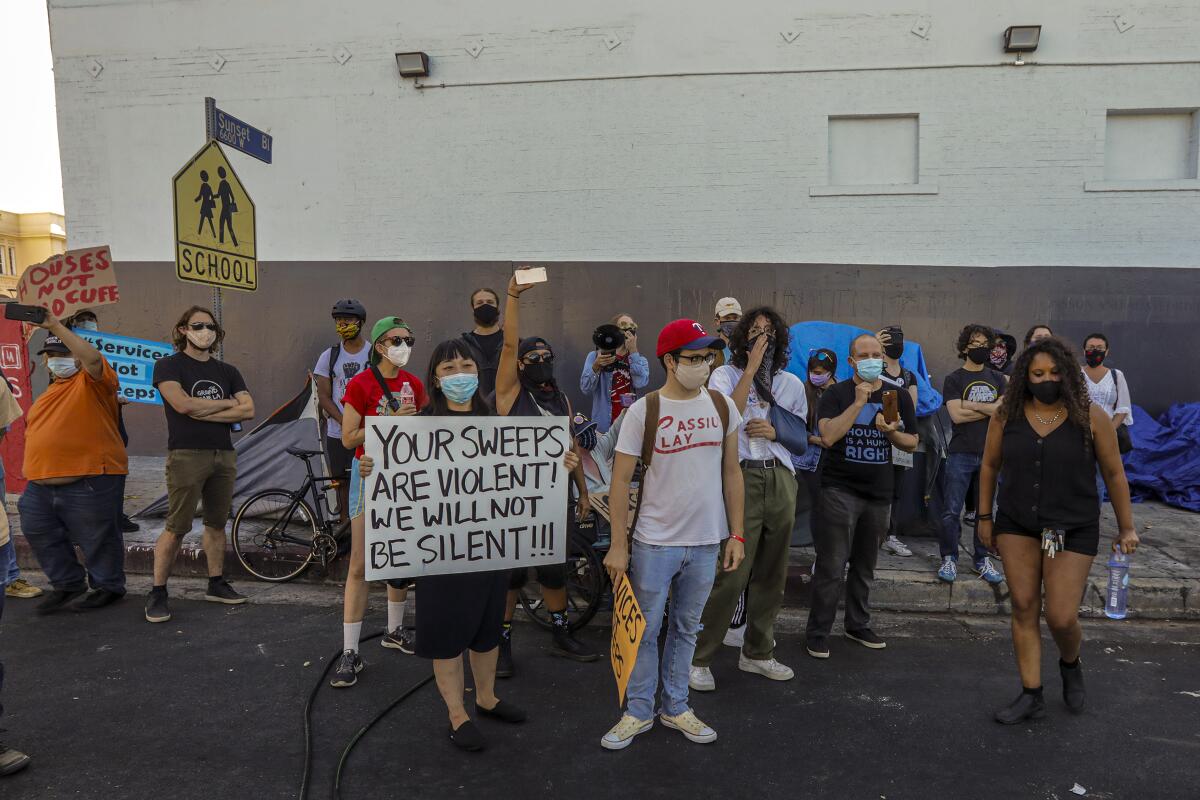
- Share via
Activists took to the streets of Hollywood on Wednesday to protest what they described as disruptive sweeps of homeless encampments and demand that L.A. leaders commandeer hotels to house people living on the streets.
The Services Not Sweeps coalition said it had booked hotel rooms for more than 20 people who sleep near a city shelter in Hollywood and was occupying their spots on the street to resist a scheduled cleanup in the area.
Protesters denounced such “comprehensive cleanups,” the term used by the city for cleanups that require homeless people to remove their tents, as destructive, costly and inhumane, and argued that they put people at greater risk of becoming ill with COVID-19.
“It makes more sense to get folks indoors than to continue to harass them week after week with sweeps,” said Ashley Bennett, co-founder of the progressive group Ground Game LA. “Good cleaning and trash pickup are services we absolutely deserve. But moving things every single week amidst a pandemic — it just doesn’t make sense.”
Bennett, a former outreach worker with the Los Angeles Homeless Services Authority, also called on the homeless agency to “step up to the plate” and find housing for the people for whom activists had booked rooms.
During the protest, dozens of demonstrators blocked streets and surrounded tents to prevent them from being removed, holding up signs with slogans such as “No More Sweeps.” At one point, a scuffle broke out between a man who was driving a truck and protesters blocking McCadden Place.
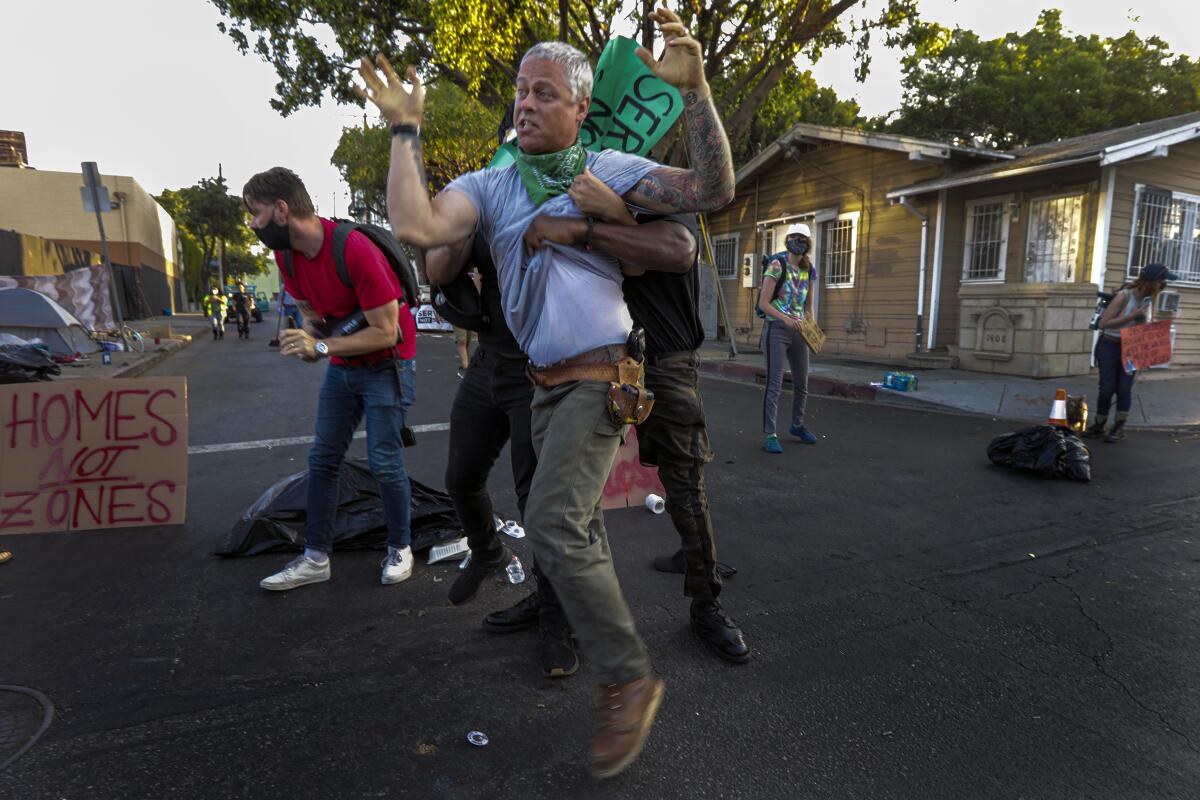
The demonstration comes weeks after the Los Angeles City Council voted to resume comprehensive cleanups in zones outside “bridge housing” shelters run by the city.
Such cleanups require people to move their tents, unlike “spot cleanings” in which sanitation workers clean around the tents, and they can last anywhere from a few hours to an entire day, according to sanitation officials. Backers of the move argued the intensive cleanups were needed to prevent trash and junk from piling up on city streets.
Supporters of the decision said it was needed to maintain cleanliness and keep promises that city leaders made to neighbors. Critics said it would put homeless people at greater risk during the pandemic.
The decision to resume such cleanups alarmed advocates for homeless residents and some council members, who argued that it defied health guidelines during the pandemic. The federal Centers for Disease Control and Prevention warns that “clearing encampments can cause people to disperse throughout the community,” which “increases the potential for infectious disease spread.”
At a July hearing, Councilman Joe Buscaino countered that people had to relocate only temporarily for the cleanings and likened the practice to moving cars ahead of street sweeping. He later added that the CDC guidelines did not “accurately reflect the situation on the ground” because he had seen homeless people who were not isolating in their tents.
“All I’m asking is to simply clean up our streets. Why is that not acceptable?” Buscaino said in July.
Buscaino and other officials also balked at activists’ use of the term “sweep,” arguing that the city is simply cleaning up trash. Homeless activists, in turn, counter that the practice is much more disruptive than mere cleaning.
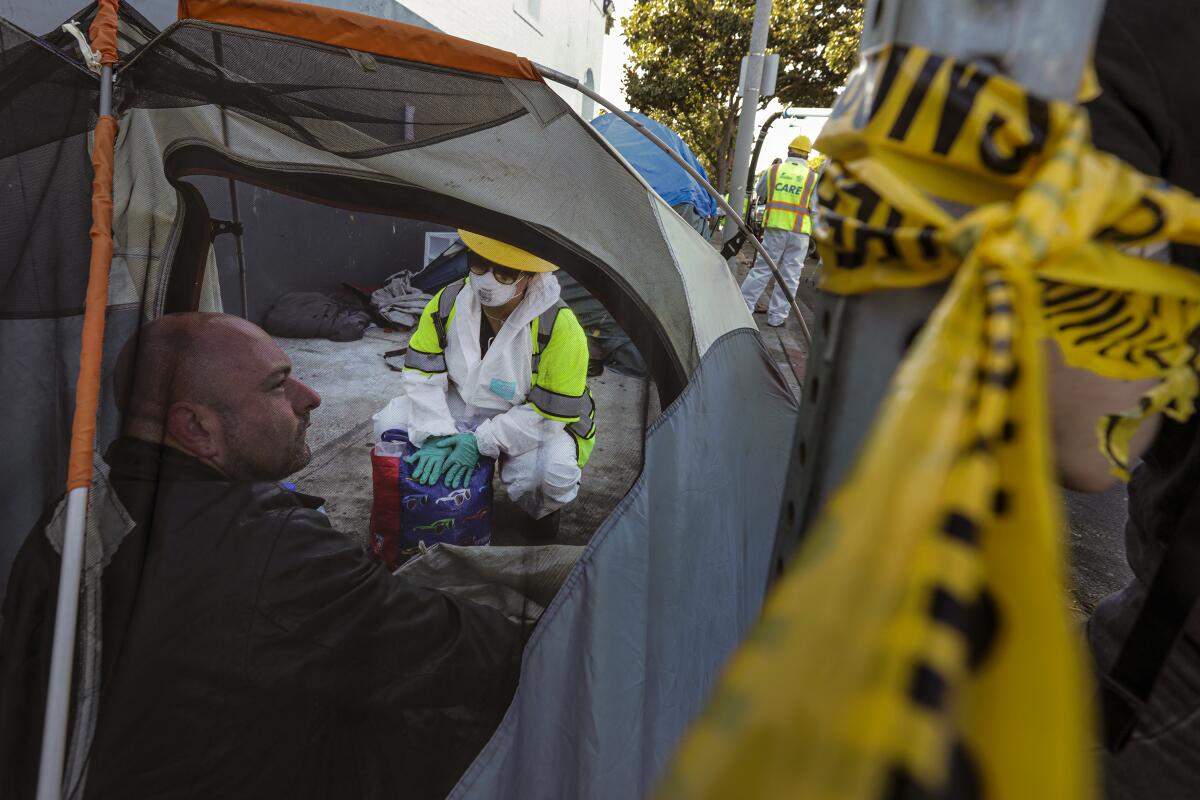
Protest organizers said they were demanding an immediate halt to the comprehensive cleanups and elimination of special zones outside the city shelters that have stricter enforcement. As protesters gathered Wednesday in Hollywood, city crews decided to do spot cleaning in the area instead of a comprehensive cleanup, according to the Bureau of Sanitation.
“One of the things our teams are trained now to do is deescalate, and that’s what they did this morning,” said Elena Stern, a spokeswoman for the Sanitation Bureau. “Our crews are trained not to get into confrontations.”
Stern added that the cleanups now include services such as coronavirus testing, tent exchanges and hygiene kits.
Jed Parriott, an organizer with Street Watch LA, said that although city crews agreed to do spot cleaning during the Wednesday protest, they had continued to ask unhoused people to move and had approached unattended tents, spurring protesters to block those tents with their bodies.
“They’re trying so hard to clear people even though we’ve told them, ‘The residents don’t want you to do that,’” he said.
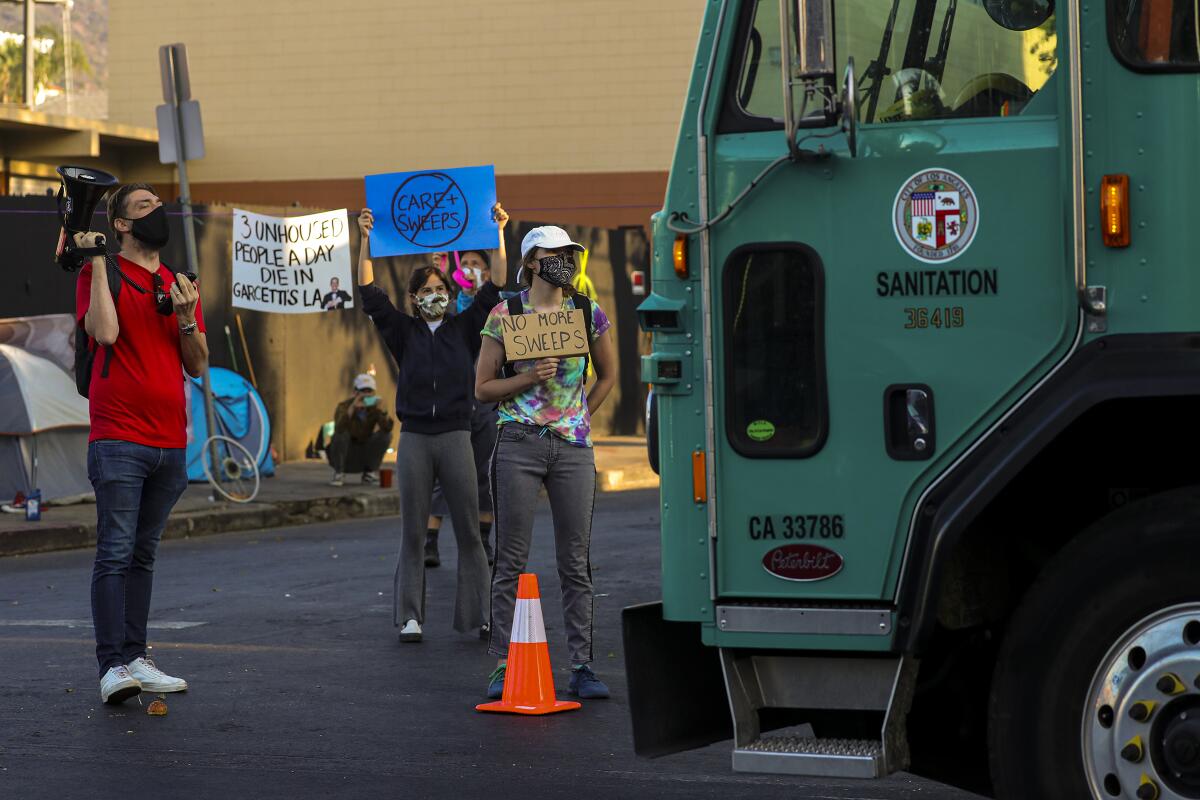
The Services Not Sweeps coalition also called for Los Angeles to remove law enforcement from any homeless outreach efforts and to create a new committee of unhoused people to oversee city decisions on homelessness. Council members have been exploring the idea of a city commission made up of people who are or have recently been homeless in L.A.
In a court case, homeless advocates recently accused L.A. of defying an April order that prohibits the city from seizing and destroying bulky objects such as mattresses and carts based solely on their size. Under the order, such belongings can still be confiscated in other circumstances, including if they are blocking the sidewalk or threaten public safety.
Attorneys representing Ktown for All and several homeless people said in a court filing that after the council voted to resume comprehensive cleanups, L.A. posted signs in San Pedro indicating that “Bulky items are always prohibited” ahead of a cleaning, as well as other improper notices in other neighborhoods.
Putting up such signs is “not simply a harmless act,” the attorneys wrote, because people are likely to abandon their belongings thinking they will be removed, with “no way of knowing that the city is enjoined from actually doing so.”
The attorneys urged the judge to deem the city in contempt of court. Rob Wilcox, a spokesman for the Los Angeles city attorney, said Wednesday that the office was reviewing the claims and preparing a response for the court.
More to Read
Sign up for Essential California
The most important California stories and recommendations in your inbox every morning.
You may occasionally receive promotional content from the Los Angeles Times.
